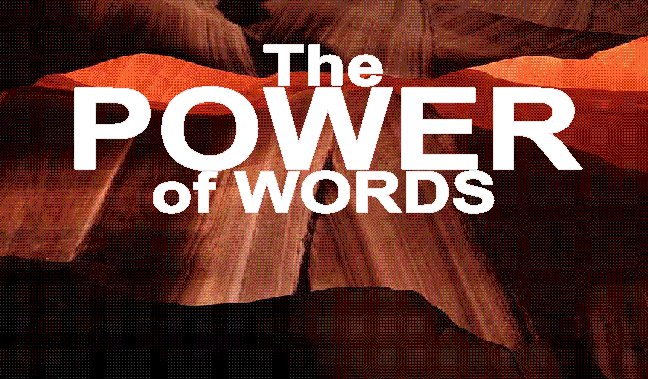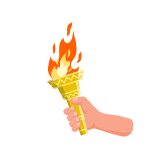I’ve been thinking about the words we use to describe those who choose not to have children. Years ago it was “childless”-those who didn’t have kids, by choice or not. The word became criticized by those who chose not to have kids because it denotes a lack or an incompleteness.
In the 70s “childfree” started as a reaction to this “less” concept. While it has more positive connotations than “childless,” “free” is also interpreted negatively, reflecting someone who shuns the responsibilities of parenthood, aka “adulthood.”
This belief has its roots in pronatalism, the backbone of why those who don’t want children are judged. It’s our deep seated value system that is pro-baby, encourages reproduction, and exalts the role of parenthood.
With pronatalism in mind, take the focus off “free” and “less.” What’s left? The word “child.” The very words we’ve used begin with the focus on child—at its root, it comes from a pronatalistic context! What could we use instead –to finally get away from ties to pronatalistic thought?
There are other words out there. “Non-parent” is used…pass. That focuses on “parent” and describes us as “not” that so in the same way starts with a pronatalistic context.
Marty Ireland, in her book, Reconceiving Women: Separating Motherhood from Female Identity, characterizes women who choose not to have children as the “transformational woman.” While the idea of being transformational is cool, imagine describing yourself that way to others—pass!
Think about this. It is about time to come up with a new word or phrase that does not have pronatalistic connotation. In the bigger picture, it would use the power of words to take a step toward challenging our pronatalistic society and its continued push for reproductive conformity.






There aren’t many words we use to describe people who opt out of anything, in general. The only two I can think of are “atheist” and “vegetarian”.
“Atheist” is similar to “childfree”, but “vegetarian” is positive; it describes what the person does eat.
So by that logic, a childfree analog to “vegetarian” might be:
“I’m an aunt”
“I have a dog”
“I build hot rods”
“I party all night long”
etc.
Which of course doesn’t work because it says nothing about the decision not to parent! Not to mention framing one’s childfreedom this way is pronatalist in that it suggests the childfree person is replacing parenthood with another activity, as if parenthood is naturally present and its removal leaves a hole to be filled by something else.
This, incidentally, is a paradigm that I come across quite frequently among parents and childfree alike. Our culture is so pronatalist that it’s automatic to think of the childfree decision as one of removing-and-replacing, a concept that I feel misses the point entirely. Just like I didn’t choose vegetarianism so that I could eat more plants, I didn’t choose childfreedom so that I could ________ either.
So if the decision not to parent doesn’t leave a hole in one’s life that should be filled, terms that suggest absence (“childfree”) or replacement (“travel”) are inaccurate. Then what else is there? Preservation of earlier/current way of life: “nulliparous”, a medical term meaning “has never had a child”, or relationship status: like “single” describes someone who doesn’t have a romantic relationship, we could make up a word for “doesn’t have a parental relationship with a child”. These both are problematic because they don’t look into the future, and being childfree is as much about desire and commitment as it is about current status.
That’s the thing. What we’re looking for is a term that describes that desire and commitment going forward. All kinds of people merely weren’t/aren’t parents, but it’s a special kind of person who won’t be!
Since there is no parent/child analog for the relationship status “single”, we can’t construct a term like “alwayssingle” or “permanentlysingle”. This leaves us with negative terms, which in this case I don’t object to. Parenthood is very common and expected in our society, and describing ourselves with a word that translates to “won’tparent” or “neverparent” only serves to emphasise the fact that said status is the result of a deliberate decision.
But most importantly, the verb “to parent” is crucial here, as it defines the “neverparent” by her own behavior, instead of defining her by the presence/absence of something external to her (the “child” in “childfree”). This shift of focus would be the best thing we could do for ourselves!
But I’ll leave the actual construction of the word to someone with an intimate familiarity with etymology!
Thanks for the thoughts! I get your thinking. Focusing on the verb to “parent” definitely seems better than “child” focus, emphasis more on choice of behavior than presence or lack of something external. “Nonparent” is used, but this is not in a verb context. I also think it is a challenge in our language to find a descriptor based on something we are Not or we did Not do. How could we get at it more from the point of what you say — the special kind of person who won’t be (a parent)?
Ohters, please give thoughts and ideas~! L
Personally, I like the word “childfree.” It describes exactly what I am – free of children (thank f**k for that!!)
I try to minimize labelling myself too much as ALL labels can become reductive and restrictive.
I agree with the reservations mentioned in your article. In general I resist defining myself according to other people’s priorities. I am not a contrast/shadow of a parent. I’m simply not a parent.
When asked, I do describe myself as Childfree because it’s a generally understood term. There’s still work to be done to combat automatic pronatalist assumptions. I like to remind others that to have/not have a child is a choice and not be an automatic or unreflective condition. (It follows that parental entitlement and martydom should be discounted as selfishness and immaturity).
I consider myself to be a NonParent more than Childfree. I don’t mind young humans for short periods of time, but I rejected the parenthood role and lifestyle. Mainly due to: lack of intrinsic appeal, Opportunity Cost, and more compelling desires for activities other than raising a child for 20+ years.
Once this part of the conversation is over I talk about my Positive Identities – Artist, Early Retiree, Adventurer, Partner, Hobbyist… I encourage everyone to expand the labels they identify with and not reduce themselves to and ‘eggs all in one basket’ life.